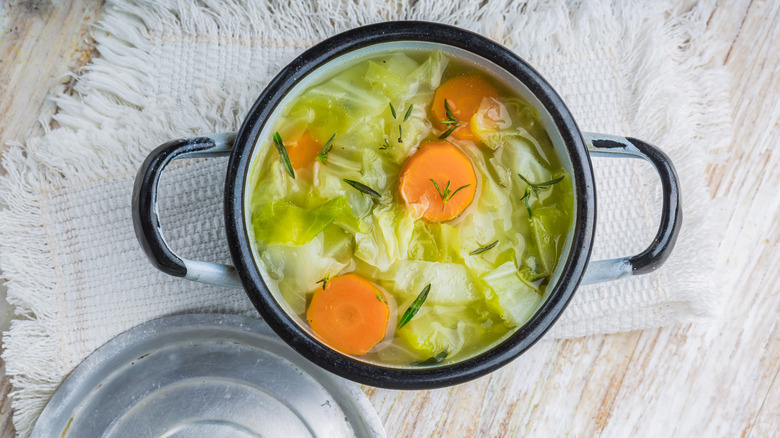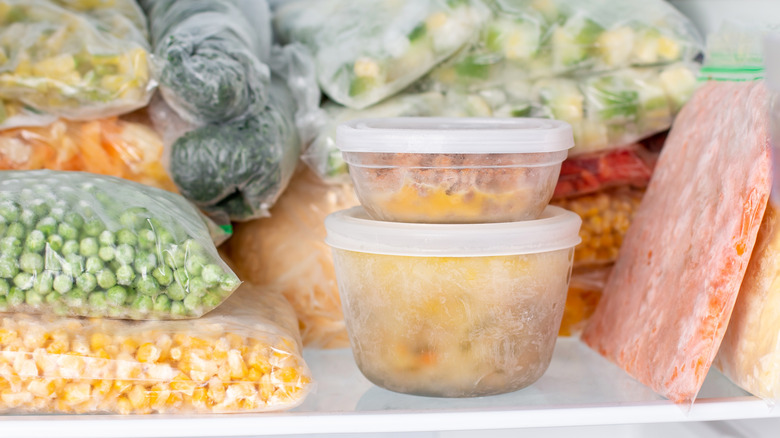It's Easy To Freeze Cabbage Soup For Later. Here's How
Included among the many tasty soups to enjoy during the fall and winter, cabbage soup is also satisfying at other times of the year. However, whipping up a batch of homemade soup often requires a bit of work, especially if you're aiming for a delicious and fulfilling outcome. As a result, many home chefs like to cook soup and freeze it for later. This entails using the best practices to maintain the quality of your cabbage soup well after it's been prepared.
After you've finished cooking the soup, allow some time for it to cool down, as you want the soup to be at room temperature when you transfer it into cold storage. However, in the interest of food safety, don't allow soup to linger at room temperature for over two hours. Once the cabbage soup is sufficiently cooled, place it into a bag or container that will hold up in the freezer. It's best to portion out the soup into serving sizes before freezing for convenience. Also, if you use a freezer bag, be sure to eliminate as much air as possible. This will preserve the quality of the soup while it's frozen.
How long will cabbage soup last in the freezer?
Freezing soup and other foods can greatly increase its lifespan. However, nothing tasty lasts forever, and all foods, including cabbage soup, have limits when it comes to storage time. With soup, recipes will remain palatable and safe for consumption for two to three months. Keep in mind that this timeline is only relevant when the soup is stored correctly.
There are lots of frozen food mistakes to be aware of, including using the wrong temperature setting. Freezers must maintain a temperature of at least 0 degrees Fahrenheit. Higher temperatures may cause foods to thaw, and thawed foods will subsequently go bad much faster than properly frozen items. This underscores the importance of waiting for your soup to cool before placing it into the freezer. Hot food in the appliance will raise the temperature, which puts your soup and other frozen foods in jeopardy. And while properly freezing cabbage soup beyond three months won't necessarily lead to health concerns, it can have a negative impact on the quality of your recipe.
Tips on thawing cabbage soup
Much like using the proper practices to freeze cabbage soup, you must also exercise caution when thawing it for a quick and tasty meal. In this case, there are three acceptable methods you can use to defrost your soup. Frozen cabbage soup can be thawed in the microwave, placed in the refrigerator overnight, or dunked in cold water in an airtight bag. Using other defrosting methods can put you at risk of foodborne illness and all its unpleasant effects.
In addition to obeying the many other vital food safety rules, you must do what you can to keep food out of the danger zone. The danger zone is a temperature range that begins at 40 degrees Fahrenheit and extends to 140 degrees. The reason that this range is problematic is that bacteria are most likely to grow when food is exposed to these temperatures. Safe defrosting practices may take a little longer and might not be as convenient, but they will ensure that your cabbage soup is as tasty as it is food-safe.


